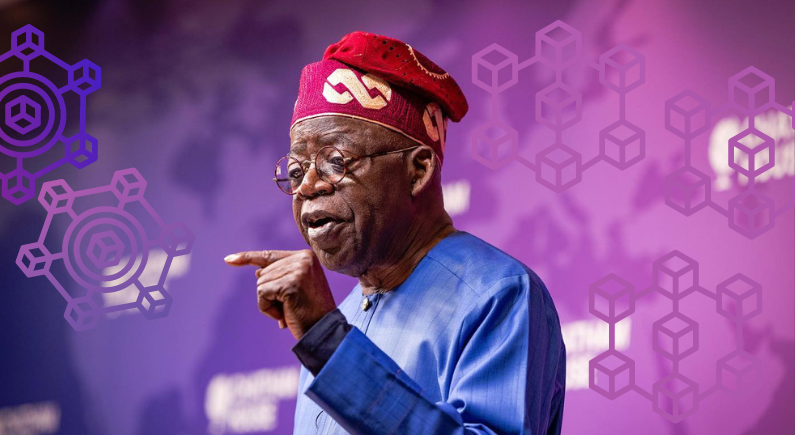NEWS
Tinubu eyes Bosun Tijani, Olumide Soyombo for key tech roles

As Nigeria’s President Tinubu assembles his cabinet, the Nigerian tech ecosystem is brimming with excitement as four esteemed stakeholders are being considered for key positions in his administration.
Exclusive reports reveal that Bosun Tijani, Oswald Osaretin Guobadia, Olumide Soyombo, and Idris Alubankudi Saliu are among those being evaluated for crucial roles, including a ministerial seat, in the Tinubu administration.
Though the final list is yet to be confirmed, insiders close to the presidency have verified that these tech visionaries are in the running for key roles at the federal level. While no guarantees have been made, their impressive track record as technocrats presents hope for Nigerians who have long called for the appointment of industry-specific experts into significant positions.
Here’s a closer look at the exceptional lives and achievements of these tech leaders:
Bosun Tijani: CEO and Co-founder of CcHub
Bosun Tijani’s transformative leadership as CEO and co-founder of CcHub, one of Africa’s leading technology hubs, has been nothing short of remarkable. Having expanded CcHub’s influence across Nigeria, Kenya, and Namibia, Tijani has nurtured a powerful platform empowering young entrepreneurs with tools, communities, and capital for launching impactful ventures. With a billion naira growth fund, CcHub has already supported over 95 early-stage businesses, making a significant impact in sectors like education and healthcare. Tijani’s dedication earned him a spot among the 100 most influential people in Africa by New Africa Magazine in 2017.
Oswald Osaretin Guobadia: Architect of the Nigeria Startup Act (NSA)
Oswald Osaretin Guobadia played a crucial role as Senior Special Adviser to Former President Muhammadu Buhari, leading the design and drafting of the Nigeria Startup Act (NSA). This act remains one of the most significant achievements for Nigeria’s tech ecosystem, aimed at improving the ease of doing business and attracting foreign investments. Guobadia’s expertise extends beyond policy-making, as he co-founded DBH, an African infrastructure and IT company offering consultancy and specialized solutions worldwide.
Olumide Soyombo: Investment Mogul and Prolific Angel Investor
Olumide Soyombo’s name echoes across Nigeria’s tech landscape as one of the earliest investors in Paystack, a pan-African payments company acquired by Stripe for $200 million. His influence extends as one of Nigeria’s most prolific angel investors, backing 48 startups within two years through Voltron Capital, an early-stage investment vehicle. Soyombo’s innovative journey began with launching Bluechip Technologies, a startup providing data housing and business intelligence solutions, catering to esteemed clients like Microsoft and Oracle.
Idris Alubankudi Saliu: Former CTO of Interswitch Group
Idris Alubankudi Saliu’s entrepreneurial prowess, investment acumen, and tech advocacy make him a formidable candidate. As the former Chief Technology Officer of Africa’s oldest unicorn, Interswitch Group, he spearheaded critical advancements in telecommunications, payments, and digital infrastructure. Presently, Saliu co-founded fintech companies, Arca and UK-based Ceviant, the latter specializing in treasury and trade solutions for businesses globally.
Many had expected Aboyeji, a prominent figure in Nigeria’s tech community, to be among the front-runners for a significant role in President Tinubu’s administration. As a co-founder of Andela, Aboyeji played a pivotal role in connecting African software developers with global tech companies, making a significant impact on the continent’s tech talent pool. Furthermore, his co-founding of Flutterwave, a groundbreaking fintech company, revolutionized digital payments in Africa and earned him global recognition as an influential advocate for the tech ecosystem.
With an impressive entrepreneurial journey and dedication to empowering African tech talents, Aboyeji’s absence from the list of those considered and nominated has raised questions among the tech community.
President Tinubu has expressed ambitious goals for Nigeria’s tech ecosystem, including expanding broadband penetration, implementing blockchain policy reforms, and creating one million new ICT jobs within two years. To achieve these milestones, individuals with proven industry-specific competence, like the tech experts mentioned, are indispensable. Specific ministerial portfolios requiring digital technocrats include the minister of communications and digital economy, minister of science and technology, minister of information and culture, minister of finance, and the minister of trade and investments.
Leaders heading ministries overseeing technology and the digital economy need experience driving large-scale technical projects and working with technologies like blockchain, AI, and cybersecurity systems. The success of Rwanda’s tech ecosystem under the guidance of a pro-blockchain advocate, Paula Ingabire, demonstrates the potential impact of deeply informed experts in driving national tech strategies.































